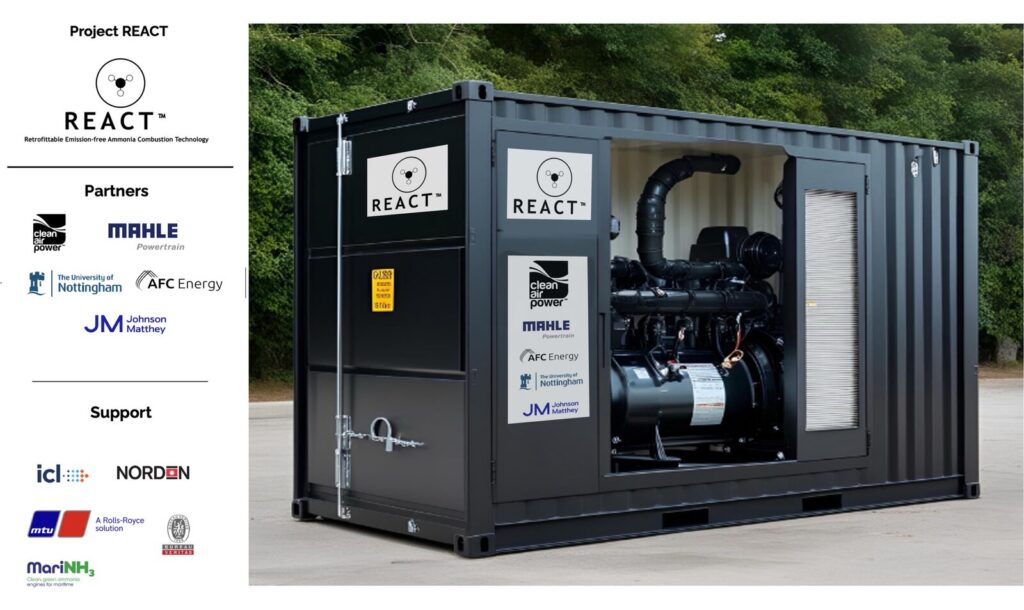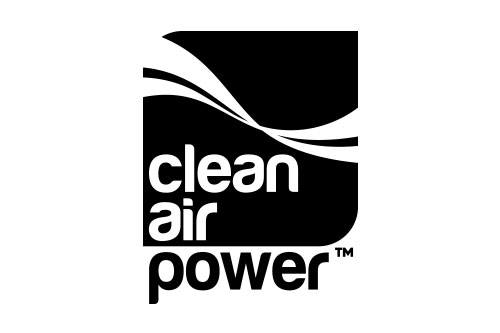In a significant boost for the UK’s net zero ambitions and leadership in clean maritime technology, a Clean Air Power led collaboration has secured funding under UK SHORE, a UK Department for Transport programme, delivered in partnership with Innovate UK, under the Clean Maritime Demonstration Competition Round 6 (CMDC6). This investment will support Project REACT – a groundbreaking initiative to deliver the world’s first mono-fuelled ammonia generator set retrofit for maritime applications. This underscores ammonia’s valuable role as a hydrogen carrier, offering a practical, viable solution to decarbonise a hard-to-abate sectors including maritime.
Through Project REACT (Retrofittable Emission-Free Ammonia Combustion Technology), the consortium – comprising Clean Air Power, MAHLE Powertrain, Johnson Matthey, AFC Energy, and the University of Nottingham – will conduct pre-deployment trials of a fully decarbonised, containerised ammonia genset, developed as a retrofit solution for existing diesel engines. Driving forward the UK’s position as a global innovator in sustainable shipping, this system offers a scalable route to reduce greenhouse gas emissions from shoreside, auxiliary, and onboard maritime power, with minimal disruption to existing vessel architectures.
Key project features include:
- A containerised genset design with onboard fuel handling and safety systems, enabling scalable deployment.
- A zero-carbon fuel injection system developed by Clean Air Power, for ammonia and hydrogen combustion.
- Spark ignition engine conversion, combustion system development and fuelling control architecture by MAHLE Powertrain and University of Nottingham.
- An emissions after-treatment system by Johnson Matthey, designed to meet maritime compliance.
- An integrated ammonia cracker system by AFC Energy, enabling high-efficiency hydrogen release within the engine exhaust stream.
- Validation of a novel monofuel engine operating strategy at full system level at the University of Nottingham’s Powertrain Research Centre.
The system will be designed for both portside and vessel-based applications, with a steering group comprising an engine OEM, classification body, and vessel operator helping guide the path to adoption, strengthening the UK’s maritime supply chain.
Source Article: Clean Air Power

